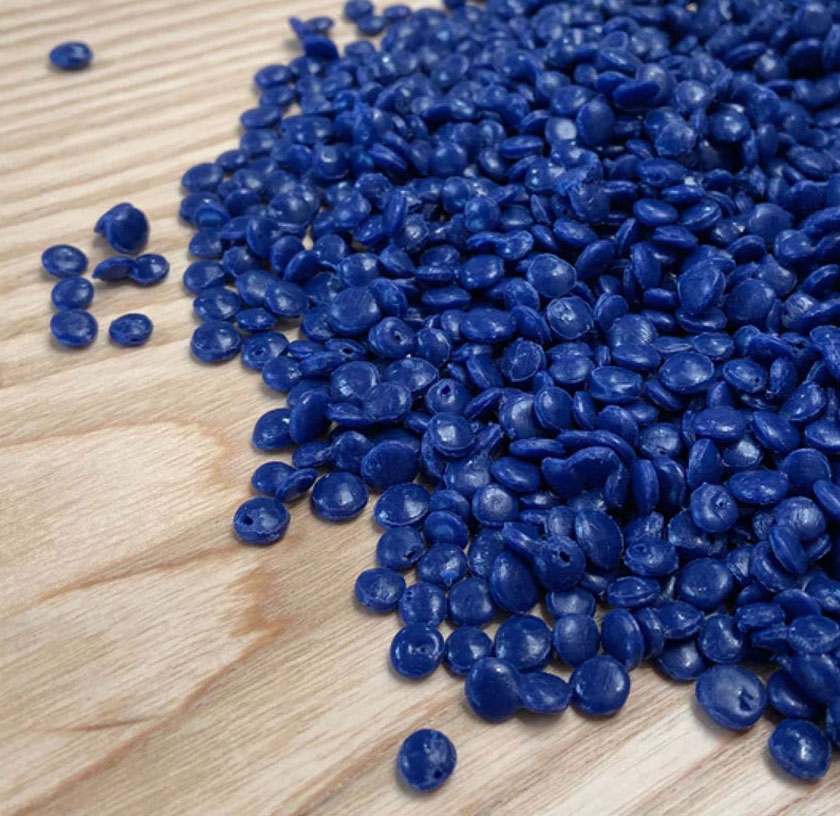Recycling & the Future: How We Use Polypropylene
07 July 2021

In a world where we’re all more eco-conscious than ever, many of us are doing our best to minimise the damage we do to the environment. We’re now more aware of our impact on the planet’s health and we’re all doing what we can to live consciously day to day. We may cycle to work rather than taking the bus, stop purchasing single-use plastic items, cut out red meat, or recycle when we can. But it’s important to know what materials we can recycle and what effects they have on our planet.
Read on to learn more about recycling and how it relates to polypropylene.
What is polypropylene?
Polypropylene, often shortened to PP, is a versatile thermoplastic polymer widely used in several industries to make countless products. PP is resistant to heat, and several chemical solvents, bases, and acids, and most importantly, it is recyclable.
PP is most commonly used to make clear film packaging, stationery, banknotes, carpet fibers, automotive components, loudspeakers, laboratory equipment, and reusable containers.
Recycling PP
While polypropylene is one of the most commonly-used plastic packaging materials worldwide, only 1% of this material is recycled. In other words, most PP ends up in a landfill. These materials take a staggering 20-30 years to decompose, raising critical environmental issues. The incineration of PP can release vinyl chloride and dioxins which are poisonous to humans.
Several companies have undertaken ‘life cycle’ studies to establish PP’s sustainability. This process assesses the polypropylene from the raw material production to its final stages to determine how recyclable the product is. These studies generally conclude that PP has an encouraging amount of potential in terms of product sustainability.
What are the benefits of using polypropylene products?
As we’ve learned, products made with PP are not considered single-use. They are designed to be used for years, reducing global consumption of raw, finite resources like propane gas and oil.
PP products also require less oil than traditional plastic production methods. Currently, around 8% of the oil used worldwide (that’s about 400 million tonnes) is utilized in traditional plastic production, with 4% used for manufacturing and another 4% as feedstock.
Compared to the energy used for oil and gas production, energy use can be reduced by an impressive 88% when we produce plastic from recycled materials.
PP is inherently flexible and can be recycled back into many different products, including:
- Clothing fibres
- Compost bins
- Dishware
- Food containers
- Gardening apparatus such as plant pots, compost bins, and garden edging
- Industrial fibres
- Speed humps
- & more.
Polypropylene is a long-lasting, adaptable product that causes significantly less damage to the planet than its single-use counterparts. It can be made into countless other products while requiring less oil and energy than other plastic items. It is a far more environmentally friendly plastic option and does not release toxins into the air during manufacturing.
Polypropylene & ProMeasures
At ProMeasures, our polypropylene products are designed to have a 5-10 year lifespan, so are extremely cost-effective. However, if they do need to be disposed of, they have plenty of life cycle in them as a recycled polymer. All our products are 100% recyclable and can be put out for curbside recycling collection when you’re finished with them. Once in the recycling stream, our PP products are ground into granules and reused to mould products again, which means the lifecycle of those materials can be prolonged almost indefinitely.
Our cups, cylinders, scoops, and jugs are durable, sustainable, come in a range of sizes, and can be fully custom-branded for your needs. Whether you need new containers to use in a laboratory or kitchen setting, or to package with your products and send out to customers, they’ll provide accurate measurements for many years to come.
Just like polypropylene, we are flexible and adaptable and are happy to customise our products based on your specific requirements. Click here to view our full range of products today.